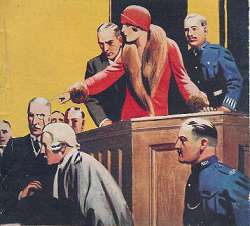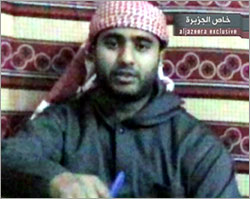 Three men went on trial on Monday accused of helping bombers prepare the deadly July 7, 2005 suicide bombings with a reconnaissance mission in London. Prosecutors say Waheed Ali (25), Sadeer Saleem (28) and Muhammad Shakil 32, spent two days in the city where they visited tourist attractions including the Natural History Museum, the London Eye and the London Aquarium. Kingston Crown Court was told the trip was 'an important first step' in the plot to detonate bombs in Britain, the Press Association reported.
Three men went on trial on Monday accused of helping bombers prepare the deadly July 7, 2005 suicide bombings with a reconnaissance mission in London. Prosecutors say Waheed Ali (25), Sadeer Saleem (28) and Muhammad Shakil 32, spent two days in the city where they visited tourist attractions including the Natural History Museum, the London Eye and the London Aquarium. Kingston Crown Court was told the trip was 'an important first step' in the plot to detonate bombs in Britain, the Press Association reported.The trio, from Beeston, Leeds, deny one charge of conspiring with Sidique Khan, Shezhad Tanweer, Jermaine Lindsay and Hasib Hussain to cause explosions. The four young terrorists killed 52 people and injured hundreds more when they set off bombs on three underground trains and a bus.
Ali and Shakil also deny a second charge of conspiracy to attend a place used for terrorist training. It is alleged they were planning a trip to Pakistan to attend a training camp when they were arrested in March 2007.Prosecutor Neil Flewitt told a jury hearing at a retrial of the men, that they were not accused of making or transporting the bombs used in the July-7 attacks. "However, it is the prosecution case that the defendants associated with and shared the beliefs and objectives of the London bombers and so were willing to assist them in one particular and important aspect of their preparation for the London bombings," he said. He said on December 16, 2004, the defendants travelled from Leeds with one of the bombers, Hussain, to London where over a period of two days they conducted a reconnaissance of potential targets. Once there, they also met Lindsay.
"It is not the prosecution case that, at the time of the trip to London, the conspirators had made a final decision about the method of attack, the targets to be attacked or even the date of the attack," Flewitt said. "However, it is the prosecution case that the London visit was an important first step in what was, by then, a settled plan to cause explosions in the UK." He told the jury that the three defendants admitted making the trip, but for family and tourism reasons. "Moreover, although the defendants all accept that they knew the London bombers, it is their case that their friendship was innocent and that they knew nothing of, and took no part in, their plan to cause explosions in the UK," Flewitt said. Ali and Shakil also did not dispute that they were intending to travel to Pakistan in 2007 but denied it was related to terrorism, he said.

 A home video of London suicide bomber
A home video of London suicide bomber  Three men accused of conspiring with suicide bombers who killed 52 commuters on the London transport system in 2005 pleaded not guilty during a court hearing on Friday. Mohammed Shakil, 31,
Three men accused of conspiring with suicide bombers who killed 52 commuters on the London transport system in 2005 pleaded not guilty during a court hearing on Friday. Mohammed Shakil, 31,  The 7 July 2005 London suicide bombings ringleader
The 7 July 2005 London suicide bombings ringleader